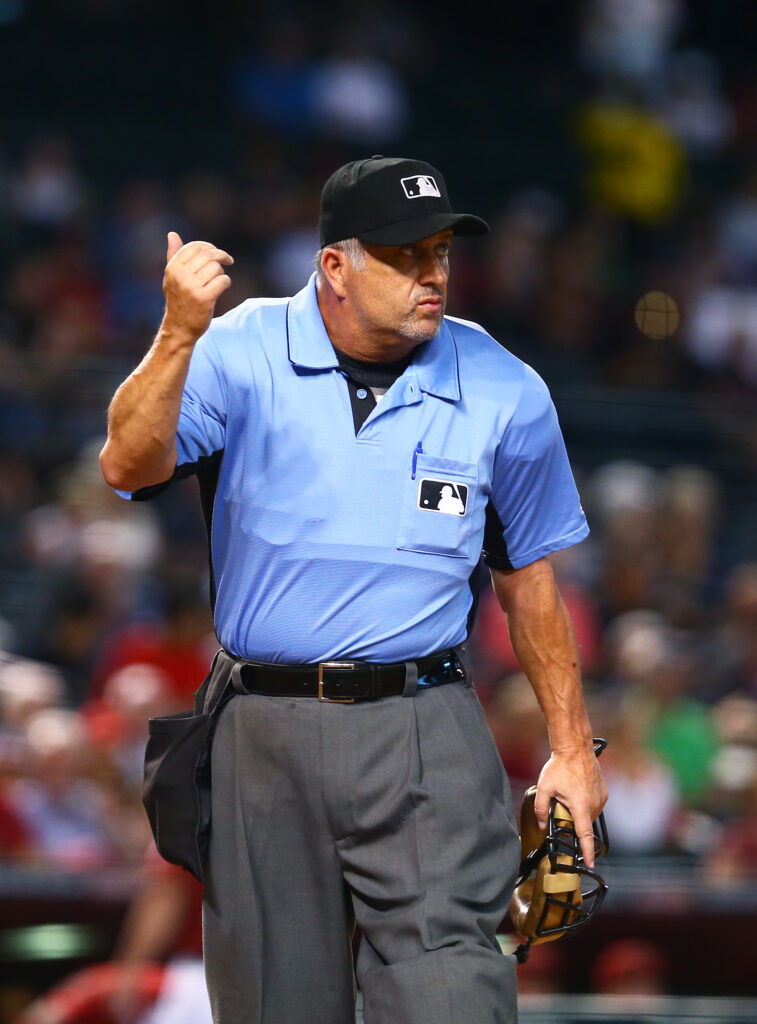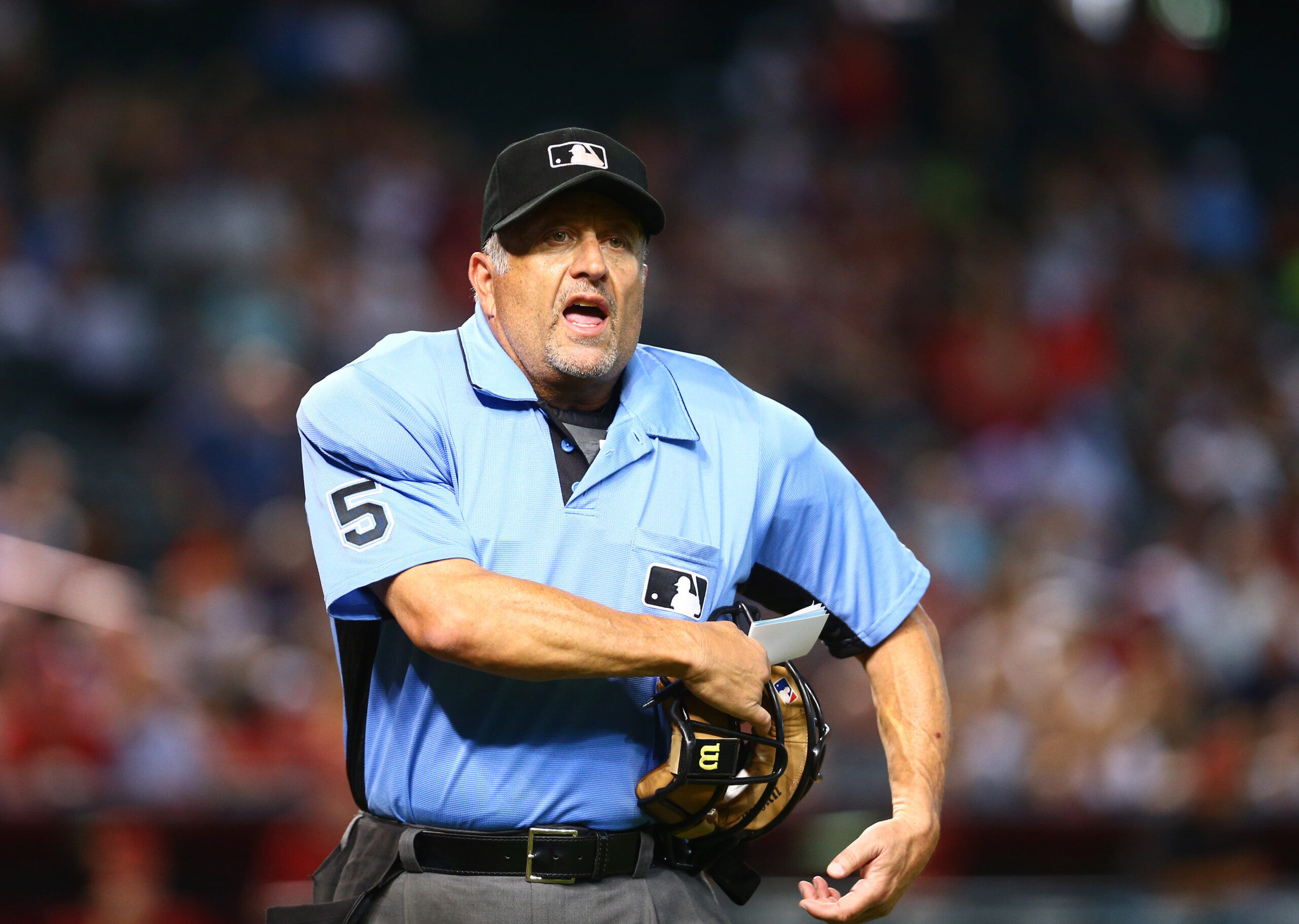I don’t want to get in the habit of paying compliments to umpires, but there is one thing that I can state for a fact: Dale Scott knows how to be funny.
It’s a good quality to have in his profession, particularly when the prospect of a 98-degree August night behind the plate in St. Louis with Tony LaRussa spewing vitriol in his general direction for nine innings is just part of the job.
It’s one thing to know how to make people laugh recounting anecdotes into a microphone but that doesn’t guarantee that someone can translate comedy to the written word. So when I tell you that Scott’s autobiography “The Umpire Is Out” made me legitimately laugh out loud numerous times in the first chapter alone, that in and of itself is one of the highest tributes I can give.
In fact, one of the best things I can say about the book is that Scott and co-author Rob Neyer seamlessly transferred his honest and self-effacing voice to the page and made it look effortless. In reality, I know how hard that is to do and it goes a long way toward making the decades of baseball stories he tells that much more entertaining.
Get off the sidelines and into the game
Our weekly newsletter is packed with everything from locker room chatter to pressing LGBTQ sports issues.
Even better, Scott is one of the few umpires who would let me call him self-effacing without ejecting me from this review.

“The Umpire is Out” is many things: a retrospective of a 33-year major league career, a repository of innumerable personal triumphs and on-field clashes, and a unique perspective of what it’s like to come out as gay while still active in Major League Baseball.
Scott’s likability permeates his narration on every page. So when he tells the story of getting notified by phone during spring training that he was officially added to the American League staff, it’s impossible to read without a big smile on your face.
But just as importantly, that smile is just as big in the very next chapter when Scott recounts walking into a Portland gay bar just after moving out of his parents’ house and becoming smitten on first sight with the man who would eventually become his husband.
The narratives of Scott’s career as a big league umpire and his life as a gay man keeping a secret from his workplace run parallel throughout the book. Scott and Neyer never lose track of either through-line, but there were times where I would’ve liked to have seen the book blend them together more often.
For example, Scott devotes a chapter to his professional struggles during his sophomore MLB season and how they shook his confidence to the core. It’s hard to read that without wondering about how the additional burden of keeping his true self hidden fed into his troubles and whether it made him ponder if living a big league umpire’s life was worth that sacrifice.
Or when Scott was threatened with being outed during a time when the umpires union imploded in 1999, he mentions that he wasn’t intimidated but stops short of revealing how such a threat impacted him emotionally or affected his trust in his colleagues.
But omissions like this are later redeemed when Scott launches into the deeply inspiring narrative of how he came out to the baseball world. His tale of meeting with a 17-year-old closeted umpire and inspiring him to come out is so uplifting, it feels straight out of a gay WP Kinsella novel.
Scott’s graciousness at realizing he had become an inadvertent role model for gay sports fans and officials everywhere is so genuine, it makes you want to reply with a hug emoji at the end of the chapter.
It’s that likability that carries the book and leads to what for me is another startling confession: there were times reading “The Umpire is Out” where I found myself rooting for the umpire. Even during his clashes with beloved Hall of Fame luminaries like Sparky Anderson, Dennis Eckersley or Cal Ripken Jr. and his family.
If Scott could pull off a miraculous feat like that, no wonder he was an ideal umpire to handle breaking barriers and coming out publicly with such grace.








































